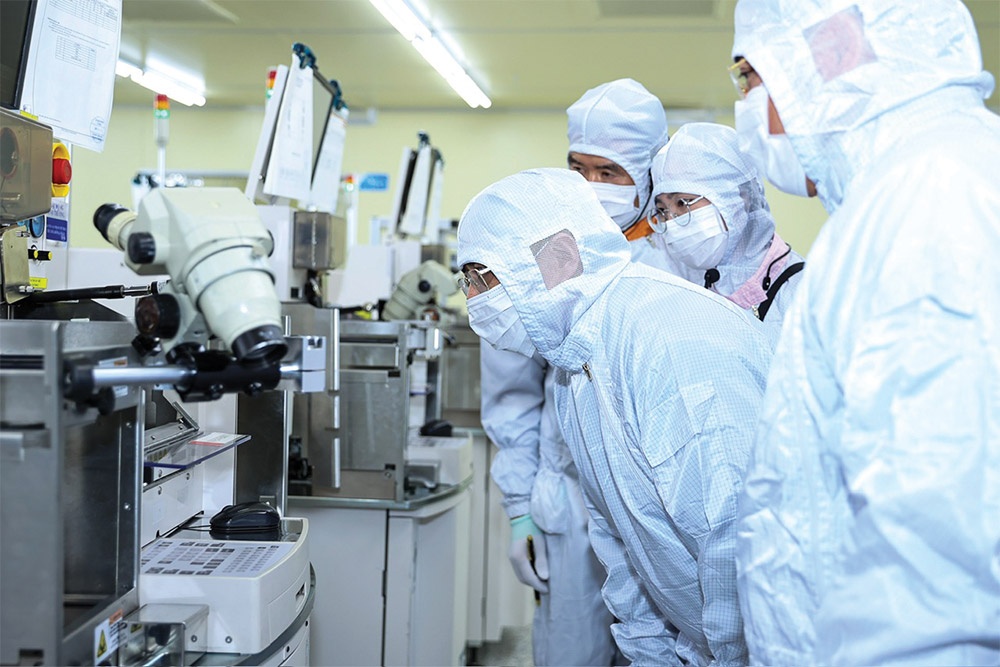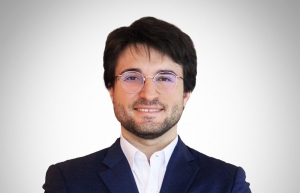Businesses increase wishes for specialised industrial parks
Data centres, industrial parks (IPs) reserved for high-tech production, and parks serving Chinese, the United States, Taiwanese, or Japanese investors are gradually being formed to welcome new funding waves, according to Truong An Duong, general manager of North Vietnam and Residential at Frasers Property Vietnam.
 |
| Highly-skilled labour, automation, and more specialisations are deemed near-future trends, Photo: Nhat Bac |
From the initial model of IPs that focused on building basic infrastructure and renting out divided land plots, specialised types of production such as research and testing centres, and exhibition and conference centres are now emerging on the market, Duong said.
“New industries such as e-commerce with requirements for data and technology infrastructure also require changes in industrial park planning,” Duong said at a VIR talk show on the issue last week.
“Over the past 5-7 years, the demand for industrial property in Vietnam has developed strongly. We benefit from the China+1 policy, the upgrading workforce, investment incentive programmes, and economic trade between Vietnam and the world, so Vietnam has great potential to engage giant global manufacturers,” Duong added.
For Frasers, projects have good occupancy rates. Enterprises that set up factories in Frasers’ system are mainly electronics and semiconductor manufacturing enterprises, Chinese-speaking countries, and Japanese and South Korean groups.
To allure supply chains with different production values and consumer goods industries, it is necessary to have specialised types such as data centres, infrastructure construction, skilled labour training, and incentives for each industry.
“Developing specialised IPs will be a trend if we want to develop deeper into the global supply chain,” Duong said. “If Vietnam intends to compete, it must have research and development facilities, data centres in IPs, and even exhibition centres for enterprises. The government must also develop services such as taxes, customs, and investment certification within IPs.”
Dinh Hoai Nam, director and head of Business Development at SLP Vietnam, said that when investing in the Vietnamese market, SLP considers Vietnam an investment bright spot on the world map.
“We will look at efficiency, not excluding any investment model, so if specialised IPs are good, we will also invest,” Nam said.
Vietnam has already specialised IPs, according to Nam, such as Sumitomo’s complexes, which are focused on by Japanese investors, and Hoa Lac, Danang, and Saigon high-tech parks, which focus on attracting IT and technology.
“However, to be able to build specialised IPs, the market itself must have enough demand and there must be an ecosystem for investors,” Nam said. “We need to let investors know that Vietnam is a place worth investing in. We and a number of other investors have the resources to develop specialised IPs, but it is important to have a suitable macro environment to create demand for investors.”
Although standard factories and warehouses will still be in high demand in the next three to five years, after that, it will be time to develop tailor-made IPs, Nam added.
Van Nguyen, transactions head for Northern Vietnam at JLL, commented that globally, the leading trend now is focusing on automation towards high-tech industries. However, Vietnam does not have specific areas planned to develop key, specialised IPs, although the advantage is that these IPs will bring a circular ecosystem.
“The upcoming development of Vietnam’s IPs will be specialised, in-depth, to position Vietnam as a progressive market to draw in high-level investors,” Van said. “However, Vietnam does not have a specific plan to develop specialised IPs. Therefore, on the macro level, consideration is needed to make a difference.”
The new trend will be on-demand tailoring, instead of ready-made built. Many Vietnamese businesses are turning to tailoring and proactively finding customers, Van said.
“The next trend after that will be automation combined with the use of highly skilled labour. Vietnam will have to implement a plan to train quality human resources as well as create key and specialised industries to be able to compete in the international arena,” Van said.
 | Updated legislation can propel data centre fortunes Data centres in Vietnam are becoming more appealing to investors, especially following the recent move by the government to open up the market. Julien Curtet, partner of Index Partners, gave VIR’s Thanh Van his insight into the latest developments in Vietnam’s burgeoning data centre arena. |
What the stars mean:
★ Poor ★ ★ Promising ★★★ Good ★★★★ Very good ★★★★★ Exceptional
Related Contents
Latest News
More News
- Construction firms poised for growth on public investment and capital market support (February 11, 2026 | 11:38)
- Mitsubishi acquires Thuan An 1 residential development from PDR (February 09, 2026 | 08:00)
- Frasers Property and GELEX Infrastructure propose new joint venture (February 07, 2026 | 15:00)
- Sun Group led consortium selected as investor for new urban area (February 06, 2026 | 15:20)
- Vietnam breaks into Top 10 countries and regions for LEED outside the US (February 05, 2026 | 17:56)
- Fairmont opens first Vietnam property in Hanoi (February 04, 2026 | 16:09)
- Real estate investment trusts pivotal for long-term success (February 02, 2026 | 11:09)
- Dong Nai experiences shifting expectations and new industrial cycle (January 28, 2026 | 09:00)
- An Phat 5 Industrial Park targets ESG-driven investors in Hai Phong (January 26, 2026 | 08:30)
- Decree opens incentives for green urban development (January 24, 2026 | 11:18)

 Tag:
Tag:





















 Mobile Version
Mobile Version